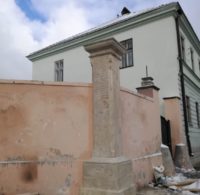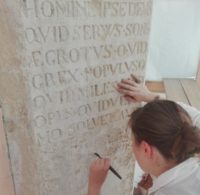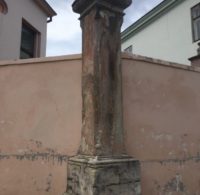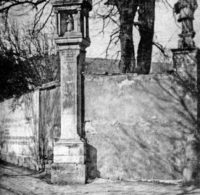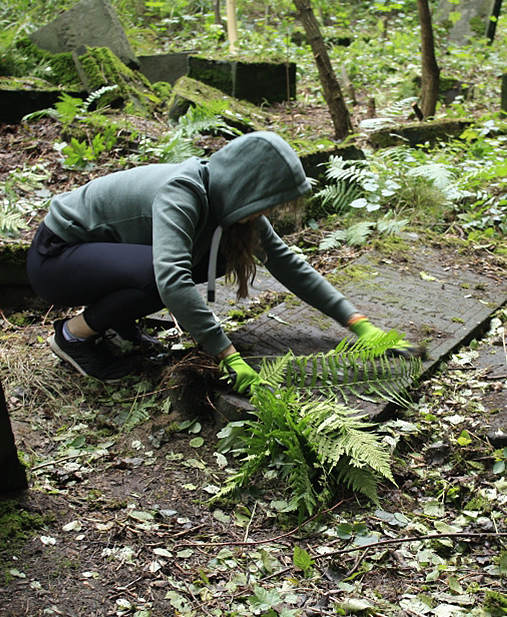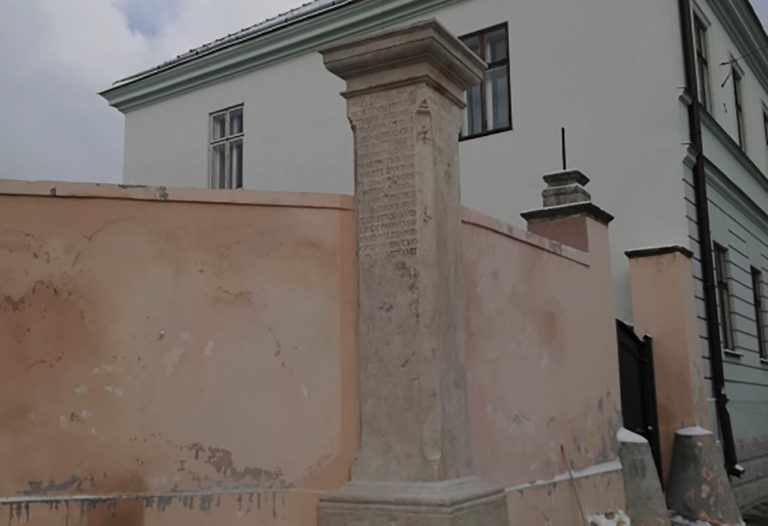Please confirm that you have familiarised yourself with the information provided below by clicking the “Understood” button.
Dear Ladies and Gentlemen,
25 May 2018 marked the day of the Regulation (EU) of the European Parliament and of the Council of 27 April 2016 on the protection of natural persons with regard to the processing of personal data and on the free movement of such data, and repealing Directive 95/46/EC (referred to as “GDPR” or the “General Data Protection Regulation”) coming into force.
To be able to continue to provide you with services through the Cultural Heritage Foundation’s website, we’d like to inform you about our data processing policy and about the principles on which this processing will be taking place after 25 May 2018.
What data do we process?
We process your personal data, collected when you use the website of the of services provided via the Cultural Heritage Foundation, including data saved in the form of cookie files.
Who is the Controller of your data?
The Controller of the database is the Cultural Heritage Foundation (PL: Fundacja Dziedzictwa Kulturowego), with its registered seat in Warsaw (00-571) at Al. Armii Ludowej 6/137, entered in the Register of Associations, other community and professional organisations, foundations, and independent public health care institutions under the National Court Register (PL: KRS) no. of 0000439624, with its records kept by the District Court of the Capital City of Warsaw, 13th Commercial Division of the National Court Register, Tax ID (PL: NIP) no.: 5213639823.
What is the purpose of our processing of your data?
● We adapt the content displayed on our website to individual tastes and needs, and are committed to continuously improving the quality of the services we offer by taking advantage of analyses of your data.
● We process user data to analyse online traffic, sources of incoming traffic, time spent on our pages, and the like to be able to improve the quality of our website on a continuous basis.
● Data processing enables us to increase the security of services provided via the Cultural Heritage Foundation (e.g. we identify persons violating the rules of the Website, posing a threat to other Users, bots).
● We process data of Users of services provided via the Cultural Heritage Foundation to make it possible for them to use our website (in accordance with the Terms and Conditions and the Privacy Policy).
How long will your data be processed?
We process your data from the moment you give your consent to such processing until the moment you withdraw this consent / request that we stop processing your personal data / request that your personal data be erased. Data collected as part of profiling is processed from the moment a person starts using the Cultural Heritage Foundation’s website (i.e. visits our web page) until the moment this person objects to the said profiling.
Can we transfer your data further?
The Cultural Heritage Foundation makes your data available only to entities processing this data at the commission of the Foundation, being the Foundation’s subcontractors (e.g. IT development companies), and at the request of entities entitled to obtain such data on the grounds of applicable law (e.g. courts). Your data will not be transferred outside the European Economic Area or made available to international organisations – except for cases of commissioning our trusted partners named in our Privacy Policy to process this data.
Whom to contact to obtain further information regarding the data we process?
If you have any doubts or issues regarding personal data, please contact our Data Protection Officer, iod@dziedzictwo.org, ul. Bukowińska 22/203, 02-703 Warsaw, Poland.
What are your rights with regard to your data?
● You have the right to access your personal data and the right to rectify it, have it erased, restrict the processing thereof, transfer it, object to the processing thereof, and to withdraw your consent to the processing thereof at any time, without affecting the lawfulness of processing based on consent before its withdrawal. You may withdraw your consent by sending an e-mail to the address of our Data Protection Officer (e-mail address: iod@dziedzictwo.org) from the e-mail address the consent concerns.
● You have the right to file a complaint to the Personal Data Protection Office if you find that the processing of your personal data violates the provisions of the General Data Protection Regulation of 27 April 2016.
● More information is provided in our Privacy Policy.
What is the legal basis for the processing of your data?
● The Cultural Heritage Foundation processes your data on a legal basis compliant with applicable law.
● The legal basis for the processing of data to provide services to Users of services provided via the Cultural Heritage Foundation is a relevant agreement (defined in the Terms and Conditions). The Cultural Heritage Foundation needs to take advantage of Users’ data to be able to provide services via the Cultural Heritage Foundation’s Website. This involves also developing the website, adapting the displayed content to individual preferences of Users better, as well as performing analyses to improve the provided services and the security mechanisms in use.
● The legal basis for the Cultural Heritage Foundation to perform statistical measurements and conduct own marketing activities is the so-called controller’s legitimate interest pursuant to art. 6, section 1, letter F of GDPR.
● The legal basis for the processing of data for third-party marketing purposes is a separate voluntary consent.
The Website uses cookies, i.e. text files stored on each User’s computer, identifying the User so as to make it possible to perform certain operations. Restricting the use of cookies may affect some features and functionalities available on the web pages of the Website. Learn more by becoming familiar with our Privacy Policy
